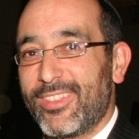click to dowload our latest edition
CLICK HERE TO SUBSCRIBE TO OUR NEWSLETTER


Published
8 years agoon
By
adminSIMON APFEL
The three-day conference, bringing together the country’s Orthodox rabbis to discuss some of the pressing issues facing the community – and usually held in South Africa – this year doubled as an Israel “solidarity mission”.
“This trip was an opportunity to reinforce the deep connection between the South African Jewish community and Israel, especially during these times of great challenge,” says Chief Rabbi Warren Goldstein, who led the delegation.
“Of course, it was also a chance for our rabbonim to reconnect with each other – to listen to anecdotes, share ideas, and strengthen our wonderful network of leaders and teachers.”
Rabbi Ron Hendler, who managed the logistics of the conference, gathered a line-up of speakers representing many different facets of Israeli society.
“We were privileged to meet with leaders in a variety of fields and to be exposed to some of the world’s top rabbinical scholars and educators,” says Rabbi Hendler.
The speakers tackled a range of issues relevant to the South African community – from how to prevent, and effectively deal with, cases of agunot, and how to strengthen families through improved family counselling, to the laws of brain death and organ donation, and even the implications of artificial insemination and surrogacy on conversion.
Army generals, government ministers and civil society leaders were also on the speakers’ bill.
Ambassador Dr Dore Gold, director general of Israel’s Ministry of Foreign Affairs, spoke about the burgeoning diplomatic ties between Israel and Africa, and South Africa in particular, and Brigadier-General Yossi Kuperwasser, director of the Project on Regional Middle East Developments at the Jerusalem Centre, gave the group the inside track on the recent dramatic upheaval in the Middle East, and its military implications for Israel.
The rabbis also met with Yaakov Litzman, Israel’s popular Minister of Health – known for his surprise personal visits to hospital patients and for his work in ensuring vital medical services and advanced medical treatment are made more accessible and affordable to people on the margins of Israeli society.
After hearing from Shurat HaDin founder and president, Nitsana Darshan-Leitner, about how her organisation was fighting terror through the courts, the group met with a number of bereaved families who had lost children and relatives to terror attacks.
Among them were Nachum Lemkus, a former South African, whose daughter Dalia was murdered in 2014 as she stood waiting at a hitchhiking stop; Rina Ariel, whose 13-year-old daughter was stabbed to death in her bedroom by a Palestinian teenager this past June; and Rebbetzen Chana Henkin, whose son and daughter-in-law were murdered by Palestinian terrorists in front of their four children in a drive-by shooting in October last year.
During Henkin’s talk, many of the rabbis were fighting back tears, as the well-known founder of Israel’s Nishmat Centre related how she and her husband had stepped in as surrogate parents for their grandchildren.
“Meeting with these bereaved families was itself a painful and traumatic experience,” says Rabbi Goldstein, “and at the same time it was so incredibly inspiring to witness first-hand their heroic strength and faith and indomitable spirit, even in the face of such unimaginable personal tragedy.
“We are only too aware that the threat of terror persists, and everywhere we went our message was that we stand shoulder to shoulder with our brothers and sisters in Israel during these difficult times.”
For many, the highlight of the conference was the opportunity to engage with and learn from some of the world’s top halachic authorities, including Rabbi Zalman Nechemia Goldberg (chief justice of the Rabbinical High Court in Jerusalem), Dayan Asher Weiss (head rabbi at Shaarei Zedek Hospital), Rabbi Hershel Schachter (rosh yeshiva at Yeshiva University in New York), and Rabbi Dr Mordechai Halperin (Chief Officer of Medical Ethics at Israel’s Ministry of Health).
Ashkenazi Chief Rabbi David Lau was among those who addressed the delegation, expressing his admiration for the South African Jewish community – whose warmth and unity he experienced first-hand on a visit to the country in 2015.
The group themselves embodied this unity, representing the broad spectrum of the country’s rabbinical leadership.
“So many of the people we encountered expressed how wonderful it was to see unity among the rabbonim,” says Rabbi Dani Brett, who was attending his 12th Rabbinic Conference and second in Israel.
“In Israel this kind of common accord unfortunately isn’t so common. Many of the great leaders and educators we were exposed to remarked that this was a lesson they themselves could take away.”
Also included in the itinerary were visits to the Zomet Institute – an organisation working at the interface between cutting-edge technology and halacha – and the military cemetery at Har Herzl, where the rabbis paid their respects to Israel’s fallen soldiers.
“As the delegation returns to South Africa,” says Rabbi Goldstein, “we look forward to sharing the eye-opening and inspiring experiences of this trip with the entire community.”

David B
Nov 9, 2016 at 7:32 am
‘It seems to me that Rabbi Goldstein has personally preselected his ‘South African ‘ Jewish community , who are of course Orthodox, and purposely left out the Jewish Community who are Conservative or Reform.
What Unity ? – You have purposely excluded part of our or maybe ‘your’ Community.
Where do the outsiders fit in when a Chief Rabbi refuses to recognize as well as communicate with us because we are not seen to be ‘Proper Real Jews’
Cheers chief Rabbi because you obviously don’t count me as one of ‘the Chosen’ ‘